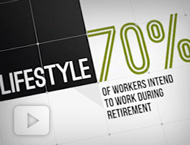
Funding Retirement and College Costs, too? How?
Retirement planning and college funding are, for many parents, hopelessly connected. The reason is simple: Whatever is spent on college usually comes at the expense

Retirement planning and college funding are, for many parents, hopelessly connected. The reason is simple: Whatever is spent on college usually comes at the expense

Did you know it’s possible for a grandparent to gift $10,000 to a grandchild for a college education and end up costing the family up

Mantaining a sound investment strategy can help put your children on the road to a valuable four-year college degree. Did you know that on average,

The Great Recession has many older Americans considering the prospects of staying in the workforce past their normal retirement again. But, working past your normal

Itdepends on how you do it! Changing or leaving a job can be a tumultuous experience. Even under the best of circumstances, making a career

Ready for Retirement? Are you ready for retirement? Here are five words you should consider. Here’s some food-for-thought from the Financial Planning Association: Three Key

Jim Lorenzen, CFP®, AIF® Before you can take income from a nest-egg, you have to HAVE a nest-egg; but, getting there takes more than discipline

Enter Longevity Insurance– But Look Closely Before You Buy. You name the fear, the financial industry will come up with a solution to sell. These

Owners of closely-held businesses have long understood the value of insurance as a funding tool for executive retention, transition planning, and enhanced retirement benefits; but,

Did you know thatproperty transferred in excess of the unified credit equivalent will ultimately be subject to estate tax in the estate of the surviving
Whether you live locally in Moorpark, Simi Valley, or anywhere else, you may want to consider having a trusted fiduciary financial advisor help with your mid-year review, as you may see.
While the Fed continues to target a 2.0% inflation rate, headwinds in the form of inflation pressures from worker shortages, tariffs, and foreign conflicts are coming at a time as America approaches a historic demographic milestone – a record number of individuals turning 65 this year.